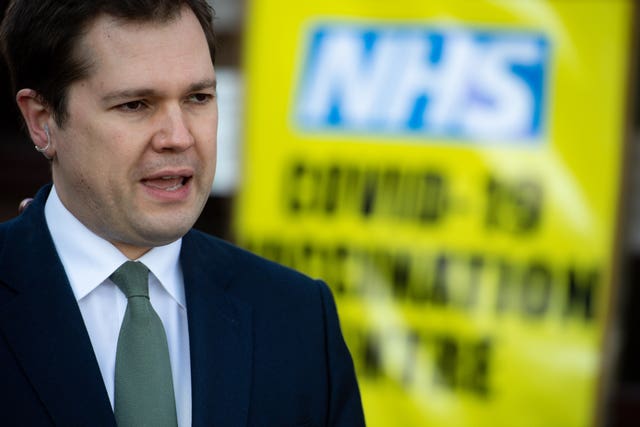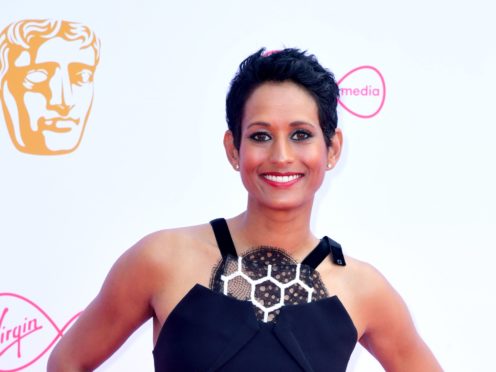Naga Munchetty has apologised for liking “offensive” tweets about a Government minister’s video call backdrop featuring the Union flag.
The BBC Breakfast presenter, 46, said she had since removed the likes and that they did not represent the views of the broadcaster.
Munchetty had faced criticism from some online following an interview on Thursday in which she and her co-host Charlie Stayt drew attention to a large flag and picture of the Queen visible behind Housing Secretary Robert Jenrick.
I 'liked' tweets today that were offensive in nature about the use of the British flag as a backdrop in a government interview this morning.I have since removed these 'likes'.This do not represent the views of me or the BBC.I apologise for any offence taken.Naga
— Naga Munchetty (@TVNaga01) March 18, 2021
Ending the interview, Stayt said: “I think your flag is not up to standard size, Government interview measurements.
“I think it’s just a little bit small, but that’s your department really. It’s just a thought.”
Mr Jenrick, who was speaking via video call from Westminster, did not respond.
When the camera returned to the studio, Munchetty was seen attempting to stifle her laugher.
She added: “There’s always a flag. They had the picture of the Queen though. In the Westminster office I am assuming.”

Munchetty later apologised for liking a series of tweets that referenced their interview and the flag.
She wrote on Twitter: “I ‘liked’ tweets today that were offensive in nature about the use of the British flag as a backdrop in a government interview this morning. I have since removed these ‘likes’.
“This do not represent the views of me or the BBC. I apologise for any offence taken.”
The BBC declined to comment further.
New director-general Tim Davie warned BBC staff over their use of social media in September last year.
The corporation later published new impartiality guidelines which warned employees not to bring the corporation “into disrepute” with their behaviour online.
These included guidance on avoiding bias through follows, likes or re-posting and shares, as well as tougher guidelines for some staff in news, current affairs, factual journalism, senior leadership, and a small number of presenters who have a significant public profile.
Munchetty joined the BBC in 2008 and became a lead presenter on BBC Breakfast in 2014.
She was rebuked by the BBC in 2019 after commenting on US president Donald Trump’s call for a group of female Democrats to “go back” to their own countries.
The corporation initially ruled that the presenter had breached editorial guidelines before then director-general Lord Tony Hall reversed the decision.
